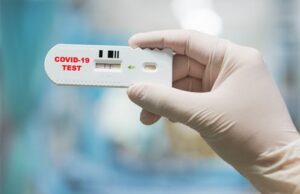 If only it were that easy. Throw a switch in the control room and the economy is back on.
If only it were that easy. Throw a switch in the control room and the economy is back on.
There’s an ongoing debate about how we can relax restrictions protecting public health to restart our economy. It’s a disagreement between doctors and scientists on one hand and the President and other Trumpy-Republicans on the other.
There’s an election coming in just six months and the President can’t wait for a vaccine. He needs his rallies, his campaign hoopla. He’d rather risk people’s lives than not be re-elected. And then there are the very real, long-term costs of having pulled the emergency cord on our capitalist train to bring a $20+ trillion economy screeching to a sudden halt.
Ours is a capitalist system in which the key to economic recovery is consumer confidence. Consumers need to believe that everything’s okay. I’m one of those consumers, an older one and I have adult children and wonderful grandchildren to worry about.
The debate is principally about testing. “If only we had enough tests.” Really? We need the tests for lots of good reasons, but even if we had them, would that be enough?
There are two kinds of tests. One determines who among us are sick with the Coronavirus. Just taking people’s temperatures isn’t sufficient. You can be asymptomatic and still be sick and able to infect other people. The other test looks for the antibodies in your blood that you would have if you had had the virus and recovered from it. If you have those antibodies, you may have some limited immunity protecting you from re-contracting COVID-19.
Widespread distribution of these tests is certainly helpful to identifying the sick, getting them the care they need and keeping them away from the general population. And people with antibodies can share their blood plasma with people who are ill, to help them recover.
Sure, maybe people with antibodies can go back to work, but who are they and what proportion of the workforce do they represent? What work will they do when they go back to it? The components of our economy are so numerous, so different and disperse, so interdependent. Can you really re-open the business of America with a relative handful of employees, here and there, trained to do who knows what? And how long will their immunity protect them?
And then there is the really big problem with testing… Those people who were tested and who aren’t sick? They may be healthy now, but they shouldn’t return to work without extraordinary measures in place to keep them safe. In any case, just because they tested negative at 9 AM on a Monday morning doesn’t mean they didn’t contract the Coronavirus later that day. Now what?
Testing is no substitute for a vaccine. Not scientifically. Not for putting consumers’ minds at ease.
If you had a test for COVID-19 that produced results in a few minutes, now that would be helpful. Everyone coming into the store could take the test and wait. If their test is negative, they can shop. If not, they would be advised to get help and turned away. We’ll call it, “point of entry testing.” It’s an idea, but not a practical solution. At least customers would have some assurance that they were shopping in a relatively safe environment. But we don’t have that test. Not yet and not everywhere in the volume we would need it – again and again, every time someone enters a workplace or store.
For now, until we have a vaccine, the pro-recovery-now people are asking employees and consumers to go back to work, back to buying – at the risk of serious illness or death. You don’t have to be an economist or marketing professional to know that’s not what you want people thinking to encourage economic recovery. And, heaven forbid, what if the infection and death rates go back up? What then?
Is recovery all about testing? Not really. It’s all about protecting people as best we can until there’s a vaccine and consumer confidence can return to normal. Until then, election or no election, we need to take care of ourselves, be patient and let our doctors and scientists do their jobs.

